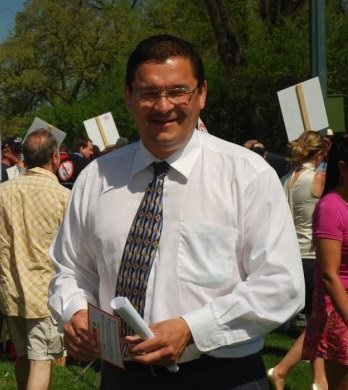The MLA for the Birch Narrows Dene Nation area is blaming the province for its bungling of a uranium exploration project near Turnor Lake ceasing activity.
Baselode Energy, which has an Environment Ministry approved permit for low-level exploration work on a site approximately 30 kilometers from Turnor Lake, stopped its exploration recently as it wanted to conduct further community discussions.
Yet, some in the First Nation feel the province did not meet its duty to consult, alleging the exploration permit was approved with only one round of consultation and no traditional land use study on how the project would impact local caribou and trappers.
“Who loses in this regard? First Nations in the Metis community at Turner Lake, the First Nations community Birch Narrows. They were clearly disrespected, in many ways. Imagine somebody showing up in your yard,” said Athabasca MLA Buckley Belanger. “And all of a sudden, they’re there, they’re digging up and moving things around, and you have no idea what’s going on. So, the First Nations themselves along with the Metis community were highly disrespected and the traditional resource users when this permission was allocated, without your knowledge.”
Belanger said Baselode Energy is also at a loss here, as the company is looking to invest into northern Saskatchewan, now has to step back and re-engage on its project.
However, some from the Birch Narrows community question the tactics of Baselode representatives in that the company began exploration work after Chief and Council told them not to.
“Now you’re jeopardizing our whole consultation process,” explained trapper Ron Desjardin. “The Ministry did not handle this well at all. It was blatantly irresponsible when on one-hand you try to talk about the duty to consult. Duty to consult doesn’t mean one sitting. How can you make decisions on one sitting?”
A temporary blockade was established for four days to prevent Baselode from preforming any work. Once Baselode committed to ceasing work the blockage came down.
“The courts, the highest courts of the land, have indicated that there must be a duty to consult and a duty to accommodate. And there’s been no effort on the government’s part, to try and put some real thought and some real, intelligent strategies to that,” said Belanger.
The Ministry of the Environment said it began is “Duty to Consult” requirements with Indigenous communities in the area in October 2020. “The ministry extended the decision dates on a number of occasions to allow the community and company officials to meet and discuss proposal details and also in response to COVID-19 related challenges,” a statement from Environment said. “The extensions were provided so the community had more time to discuss the project and express concerns to the ministry. Concerns expressed included: impact to caribou, impact to trapping and trap lines that were proximate to the proposed activities and concern regarding development of new trail to the exploration site.”
